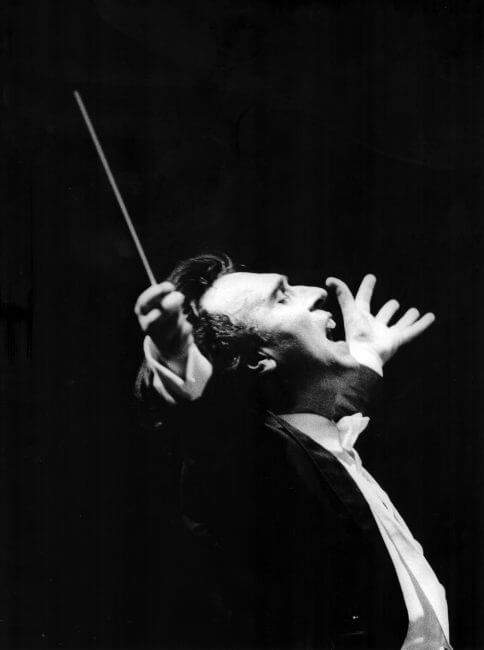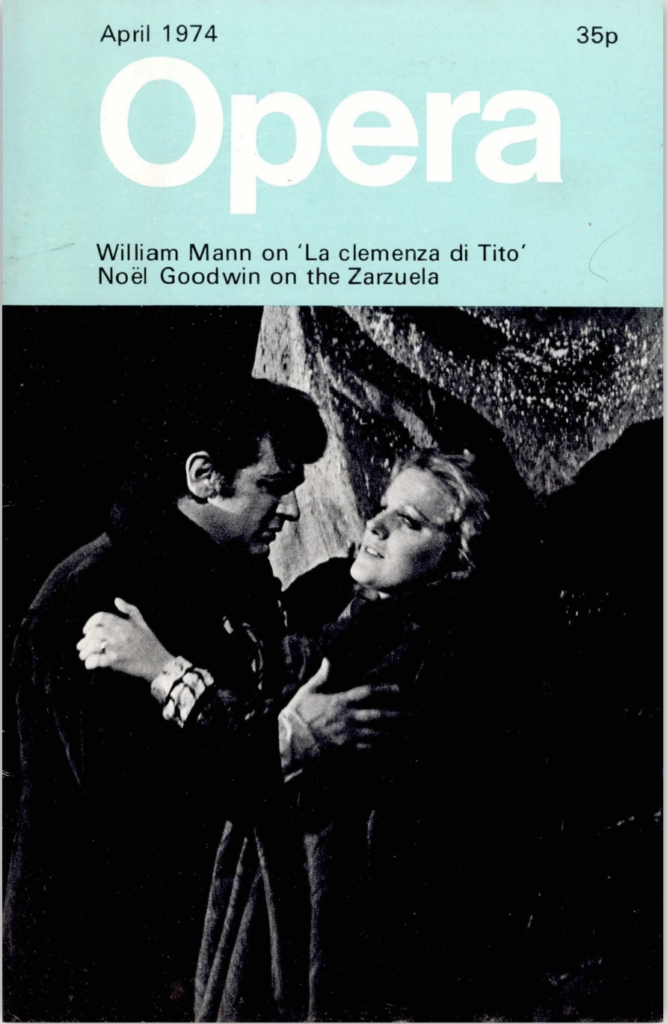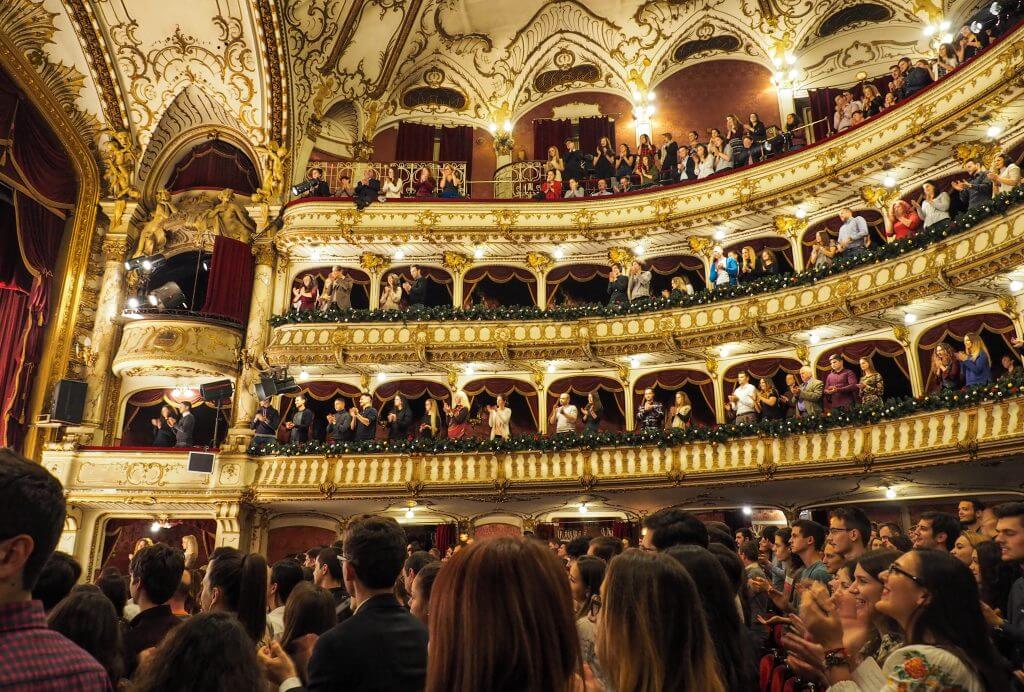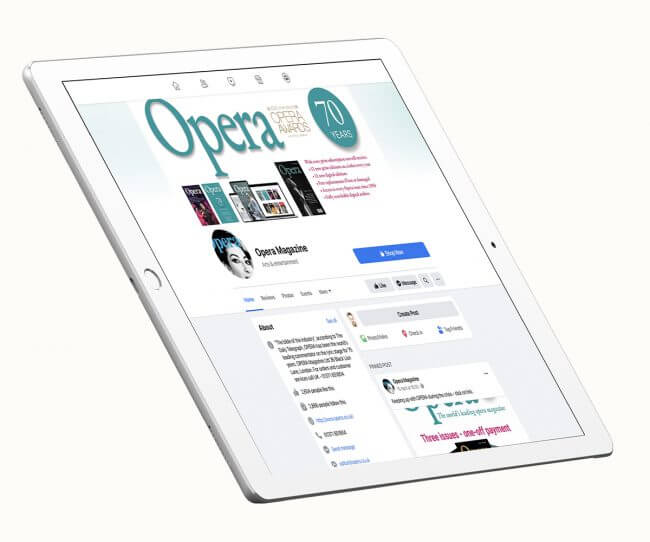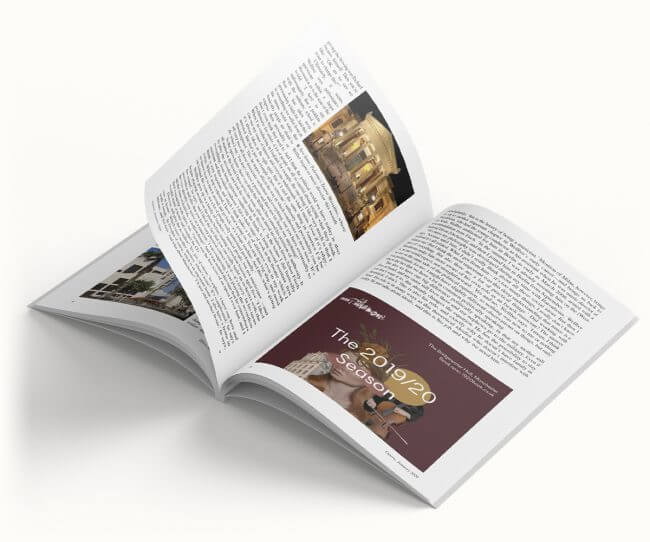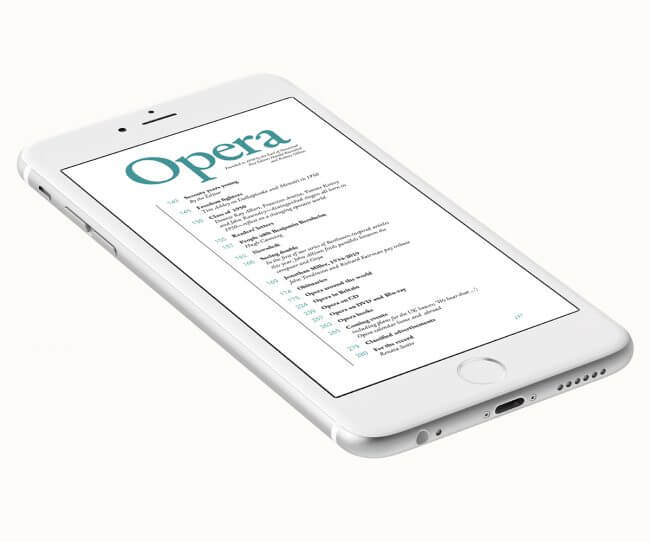The Enigmatic Idealist
March 2014 in People
Andrew Clark looks back on the life of Claudio Abbado, who died at his home in Bologna on January 20 at the age of 80
Such are the ways of the world, and such are the compromises involved, that artistic idealism is almost always relegated to a back seat in the great enterprise called opera. In Claudio Abbado\’s world, it always came first. Just look at the string of performances he inspired-from the Milan Simon Boccanegra he memorably brought to London in 1976, to the Vienna Festival\’s 1988 Fierrabras, the 1994 Salzburg Easter Festival\’s long-lived Boris Godunov and the charming Zauberflöte he conducted at Edinburgh in 2006. The full list ranges from Bellini and Rossini to Prokofiev and Nono. All had one element in common-an unswerving commitment to a vision of how opera, this opera, should be at this moment in time with this set of collaborators. In that respect, working at the highest international level over the past half-century, Abbado was unique.
Whether he deserves to be ranked in the pantheon of great conductors is open to debate. Yes, his Carmen and Wozzeck were legendary, and everything he conducted had integrity and authority, but it was all done within a set of parameters that he controlled with mild-looking, steely stubbornness. Despite the diversity of the operas he chose to espouse, Abbado steered clear of bread-and-butter repertoire. Compared to other leading Italians, his Verdi repertoire was modest. He avoided Puccini and Strauss (though he conducted Elektra in Vienna). He came to Mozart and Wagner relatively late, confining himself to single productions of Don Giovanni, Die Zauberflöte, Lohengrin, Tristan and Parsifal. He bravely tried to adapt the lessons of the period movement to his interpretative style, but his Beethoven-Fidelio as much as the symphonies-was an uneasy compromise. He had a special affinity for pieces that were difficult to pull off-Boris, Boccanegra, Don Carlos, Fierrabras, Pelléas et Mélisande, Il viaggio a Reims. And for much of his career he
channelled energy into new music by Nono, Rihm and Stockhausen, which gave him little kudos among the glitterati but reflected his belief-unfashionable for a star conductor of the 1970s and 1980s-that music of the present was part of an ongoing continuum.
Abbado held leading positions at La Scala and the Vienna Staatsoper (as well as the Berlin Philharmonic and London Symphony Orchestras), but he was no operatic reformer. Wherever he worked, he focused on his own individual projects, leaving the wider work of the institution to others. Shy, diffident and inscrutable, he never openly campaigned for anything: his lack of assertiveness often caused frustration. If he was interested in something, he would push it through on his own terms. He had an uncanny ability to get what he wanted, often by remaining quiet, but if this didn\’t work-a rare occurrence, as when he crossed swords with the Vienna Staaatsoper\’s Intendant Ioan Holender in 1991-he simply upped sticks and left.
The great paradox about Abbado was how someone so uncommunicative in rehearsal and in private could open up such powerful lines of communication in performance; how a conductor who was the opposite of a domineering careerist could reach the pinnacle of a profession notorious for its big egos. Abbado did so not by seeking to command people, but by putting the music and his command of it at the forefront of his priorities.
Of his generation he had the best combination of intellect and feeling-a combination that gave the music coherence without depriving it of spontaneity. Italian by birth and upbringing, he was not a typically instinctive Italian conductor, because his intellectual qualities always monitored the expression of feeling. His technique, one of unrivalled naturalness, enabled him to draw the most out of the music\’s peaks, giving his
performances an ecstatic, explosive quality. But it was a measured explosiveness-
tasteful and brilliant rather than temperamental-because it was always well planned.
Born on 26 June 1933 into a distinguished Milanese musical lineage, Abbado was the son of the violinist and teacher Michelangelo Abbado and a younger brother of the
composer and pianist Marcello Abbado (whose son is the conductor Roberto Abbado). He was still a small child when he saw the Nazis imprison his mother for feeding and
shielding a Jewish child in wartime Milan, an experience that possibly explains shafts of political idealism in his work as a rising conductor: as music director of La Scala he organized concerts for factory workers and persuaded the management to lower ticket prices for young opera-goers.
He studied initially with his father and then at the Milan Conservatory, from which he graduated in 1955. Piano lessons with Friedrich Gulda in Salzburg followed, but the early experience of hearing Debussy\’s Nocturnes had already fired his ambition to become a conductor, an ambition
reinforced when he attended Milan rehearsals under Furtwängler and Toscanini. What they taught him, he later said, was that ‘nothing should ever sound routine\’.
Having first studied
conducting with Antonino Votto in Milan, he attended Hans Swarowsky\’s classes (1956-8) at the Vienna Academy of Music. From this schooling Abbado drew the elements that most appealed to him-how to analyse scores, how to divide up the material, how to clarify tempo
relationships-without falling victim to the dry quality of the Swarowsky technique. The marriage of those intellectual disciplines with Abbado\’s innate Italian qualities was the basis of his interpretations, which always observed a work\’s lines within a totality.
He made his operatic debut with The Love for Three Oranges at Trieste in 1958, the year in which he won the Koussevitzky Competition at Tanglewood. He took the Mitropoulos Prize in 1963, leading to a five-month attachment to the New York Philharmonic. Throughout the 1960s he made a series of auspicious debuts-a first La Scala appearance in 1960 for a concert celebrating the 300th anniversary of Alessandro Scarlatti\’s birth, a Salzburg Festival debut in 1965 with the Piccola Scala\’s premiere production of Giacomo Manzoni\’s Atomtod, and his Covent Garden debut in 1968 with Don Carlos, his first Verdi. After opening the Milan season later that year with I Capuleti e i Montecchi (the opera with which he had made his Edinburgh Festival debut in 1967, with a cast
featuring Luciano Pavarotti as Tebaldo), he became La Scala\’s resident conductor in 1969, music director in 1971 and artistic director in 1977.
His successes there included the premieres of the original and revised versions of Nono\’s Al gran sole carico d\’amore (1975 and 1978), Wozzeck alongside the Büchner play, and a 1977 Ballo that prompted Andrew Porter in the New Yorker to say that ‘Abbado has become the Verdi conductor who unites all the Verdian virtues\’. But the Boccanegra of the previous year, his first collaboration with Giorgio Strehler, was in many respects a finer achievement, and in 1981 they went on to tackle Lohengrin, the Italianate cantilenas of which glowed in Abbado\’s hands. That year also saw a festival of Mussorgsky, a
composer with whom Abbado always showed a strong affinity. But his growing
disenchantment with La Scala\’s seemingly intractable political and industrial problems led to ever fewer appearances, and after cutting his ties in 1986, he never returned.
Appointed music director of the Vienna Staatsoper in 1987, Abbado repeated earlier successes with Don Carlos, L\’italiana in Algeri and Wozzeck: the latter, with Franz Grundheber and Hildegard Behrens, is especially well caught on DVD. There was also an outstanding Khovanshchina. But the greatest achievement of those years was Fierrabras-not at the Staatsoper but in collaboration with Ruth Berghaus and the Chamber Orchestra of Europe at the Theater an der Wien. Featuring a cast led by the young Thomas Hampson and Karita Mattila, the production virtually rehabilitated Schubert\’s opera.
In 1989 Abbado was chosen, over more aggressively touted candidates, as Herbert von Karajan\’s successor at the Berlin Philharmonic-a music directorship that
manifested itself most productively in the mid 1990s at the Salzburg Easter Festival, where he had satisfying collaborations with Herbert Wernicke (Boris) and Peter Stein (Wozzeck), and tackled his only Otello. Behind the scenes, Abbado\’s relationship with the Berliners was often awkward. Meeting public expectations after Karajan\’s long reign, and reconciling them with the demands of the musicians, was a near-impossible task. The orchestra wanted Abbado to modernize its image, personnel and internal workings, but the transition was neither swift nor easy. The older musicians were
accustomed to a more assertive lead, on and off the podium, and were not prepared to accept the responsibility he demanded of them. When he announced he would not be renewing his contract after 2002, he did so without telling the orchestra first. Latterly a warmth returned to the relationship, hastened by the conductor\’s ailing health and the heightened intensity of his performances. The treatment he underwent for stomach cancer at the end of the 1990s slowed his pace and focused his attention on special projects-notably the formation of the Mahler Chamber Orchestra and the Lucerne Festival Orchestra, with which he made his last public appearance on 26 August 2013.
Abbado\’s contribution to British musical life was long and happy. He used to recall with amusement how, at his UK debut in 1965 with the Hallé Orchestra, the audience stood at the start of Rossini\’s La gazza ladra overture, thinking the drum roll signalled the national anthem. He led the London Symphony Orchestra on a ground-breaking visit to Salzburg in 1973 and was its principal conductor from 1979 to 1987, a period that included the Piero Faggioni Carmen at Edinburgh and a landmark ‘Mahler, Vienna and the 20th Century\’ concert series at the Barbican.
But the production for which he is best remembered in the UK is the Boris he made with the Soviet film-maker Andrey Tarkovsky at the Royal Opera House in 1984. Abbado was the mainspring for the entire enterprise, a fact acknowledged by Peter Heyworth in his Observer review. While recognizing that Abbado\’s chosen version (the David Lloyd-Jones edition, ending with the Holy Fool weeping for the fate of Russia) could make for an unduly long and rambling evening, Heyworth said the conductor\’s ‘superlative grasp of the score\’ had counteracted this, generating and sustaining
dramatic tension ‘to a degree I have not previously experienced in this opera. He revealed an unerring sense of the music\’s ebb and flow, an unfailing insight into its many moods and emotions. The folksong numbers were delivered with exhilarating panache. The climaxes emerged with barbaric splendour. Yet the dark and introspective sections of the score were felt with equal intensity. For all the dramatic excitement he unleashes, Abbado\’s interpretation is devoid of exaggeration or flamboyancy.\’
Three decades later, that makes an eloquent epitaph. Abbado showed it was possible to transcend the distinctions between youth and experience, authority and democracy, the new and the established; above all, between what is ideal and what can be realized.


